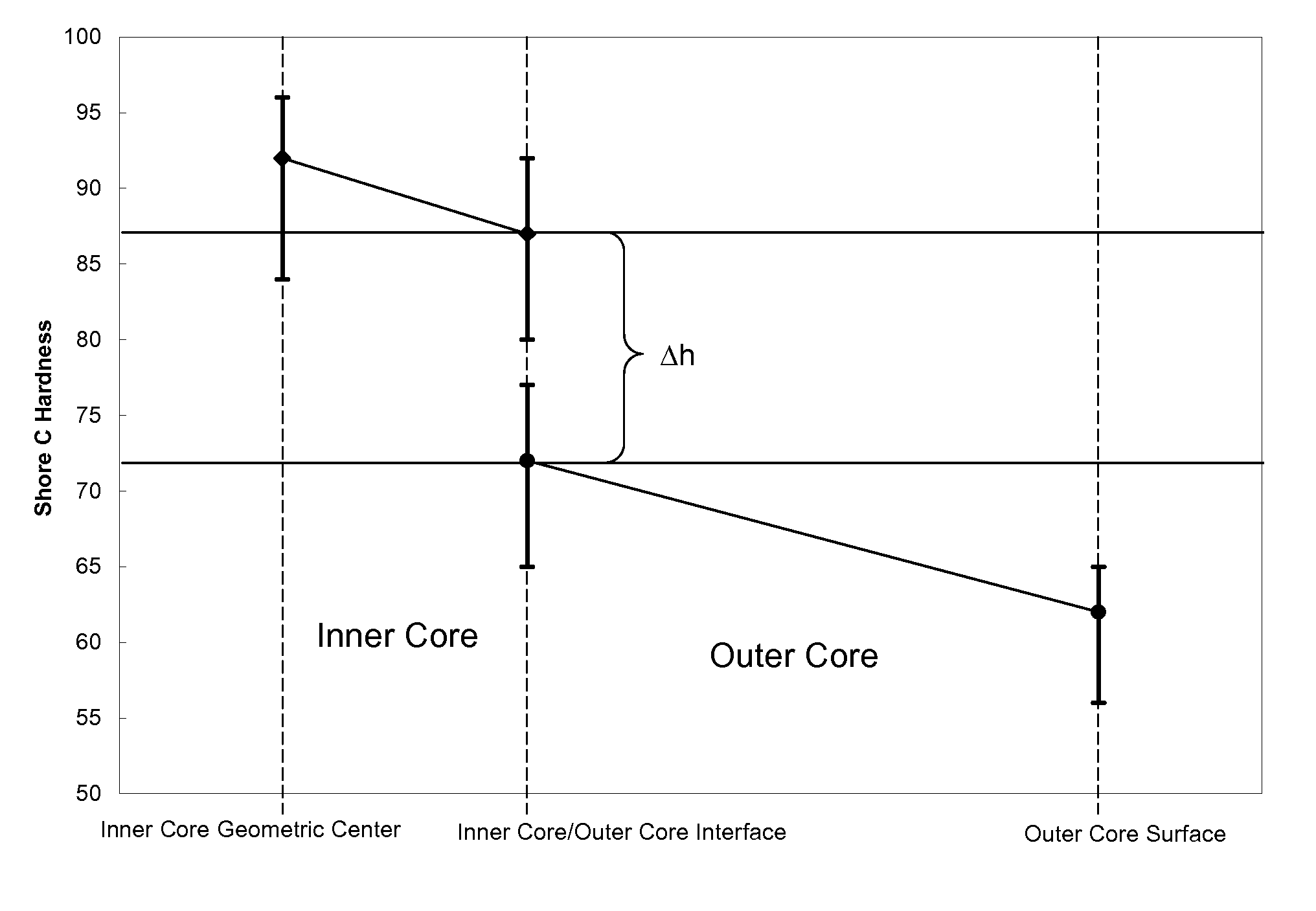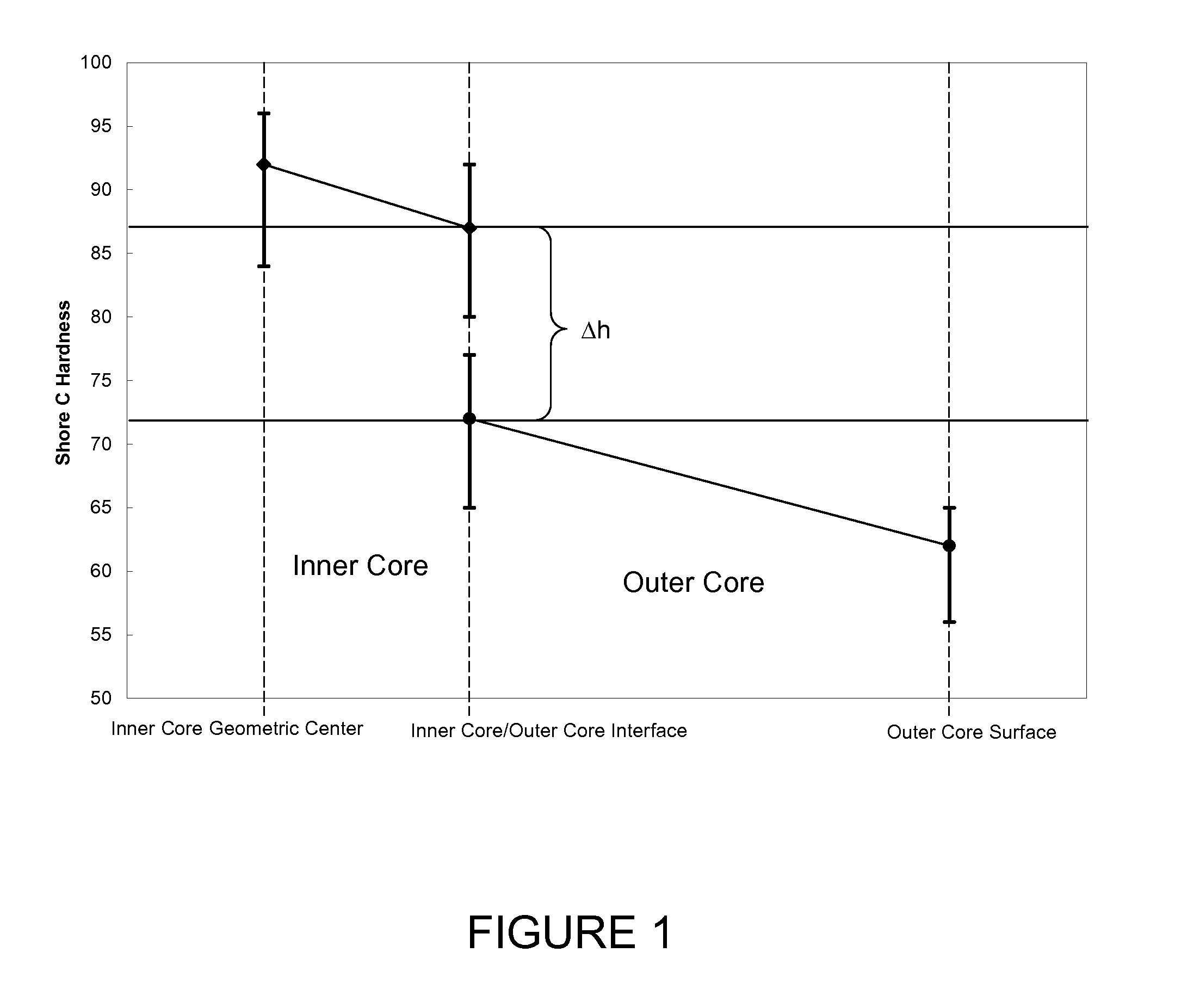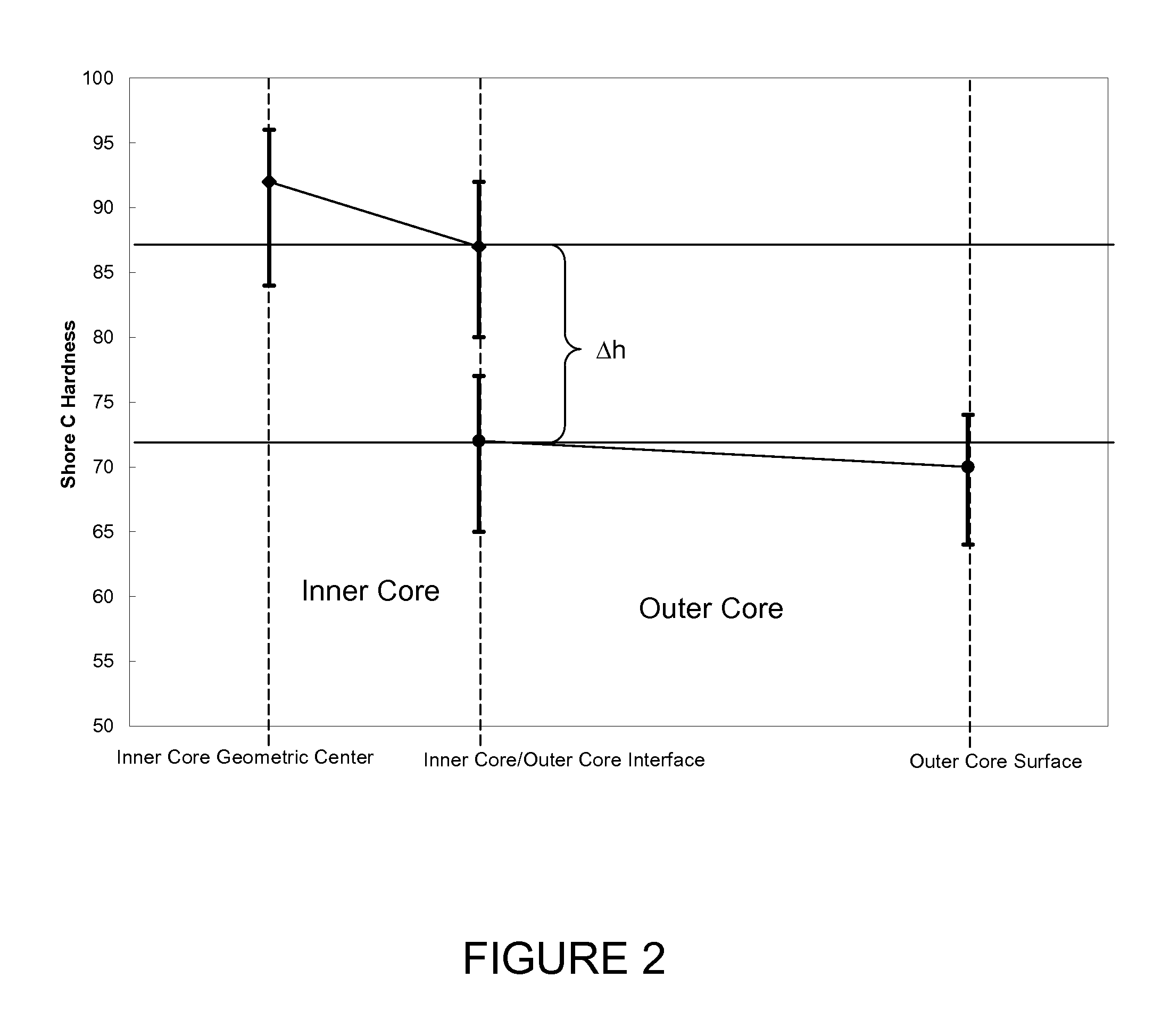Dual Core Golf Ball having Negative-Hardness-Gradient Thermoplastic Inner Core and Shallow Negative-Hardness-Gradient Outer Core Layer
a golf ball and negative hardness gradient technology, applied in the field of thermoplastic cores, can solve the problems of inability to achieve varied properties across the core of the golf ball, and the loss of physical properties
- Summary
- Abstract
- Description
- Claims
- Application Information
AI Technical Summary
Benefits of technology
Problems solved by technology
Method used
Image
Examples
Embodiment Construction
[0018]The golf balls of the present invention may include a single-layer (one-piece) golf ball, and multi-layer golf balls, such as one having a core and a cover surrounding the core, but are preferably formed from a core comprised of a solid center (otherwise known as an inner core layer) and an outer core layer, and a cover layer. Of course, any of the core and / or the cover layers may include more than one layer. In a preferred embodiment, the core is formed of a thermoplastic inner core layer and a rubber-based outer core layer where both the inner core and the outer core layer have a “soft-to-hard” hardness gradient (a “negative” hardness gradient) as measured radially inward from each component's outer surface.
[0019]The inventive cores may have a hardness gradient defined by hardness measurements made at the surface of the inner core (or outer core layer) and at points radially inward towards the center of the inner core, typically at 2-mm increments. As used herein, the terms ...
PUM
| Property | Measurement | Unit |
|---|---|---|
| flexural modulus | aaaaa | aaaaa |
| flexural modulus | aaaaa | aaaaa |
| weight percent | aaaaa | aaaaa |
Abstract
Description
Claims
Application Information
 Login to View More
Login to View More - R&D
- Intellectual Property
- Life Sciences
- Materials
- Tech Scout
- Unparalleled Data Quality
- Higher Quality Content
- 60% Fewer Hallucinations
Browse by: Latest US Patents, China's latest patents, Technical Efficacy Thesaurus, Application Domain, Technology Topic, Popular Technical Reports.
© 2025 PatSnap. All rights reserved.Legal|Privacy policy|Modern Slavery Act Transparency Statement|Sitemap|About US| Contact US: help@patsnap.com



